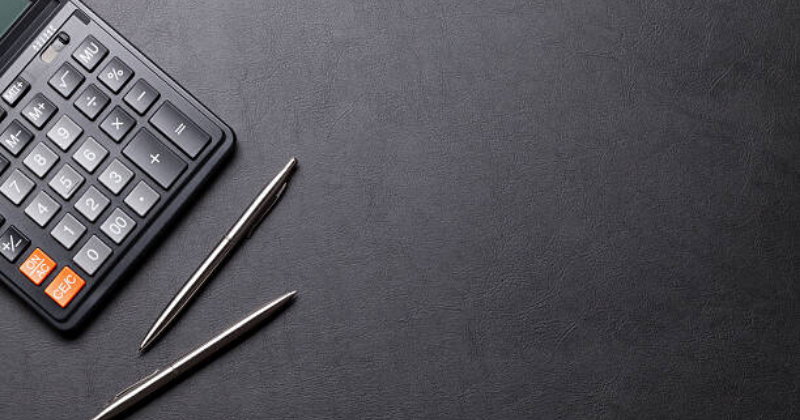Kenya’s eagerly awaited 2016/2017 budget themed, ‘Consolidating gains for a prosperous Kenya’ was read out by the Cabinet Secretary for Finance, Henry Rotich on 8th June, 2016. To meet the country’s goal of achieving a middle-income economy status, the Government aims to improve revenue collection, broaden the tax base, enhance equity and fairness in the tax system. The budget has seen some amendments in tax legislation in an effort to foster growth in certain key sectors of the economy including agriculture, tourism, manufacturing and the private sector as a whole. Some of these amendments are highlighted below:
Income Tax Act (Cap 470)
Personal Taxation (PAYE)
- While expanding the current PAYE tax bands, the Government has increased the personal relief amount by 10% entitled to an individual taxpayer from KES 13, 944 to KES 15, 360 per annum. In addition, individuals earning low incomes (of maximum KES 121, 969 per annum) will not be subjected to tax on any bonuses, overtime or retirement benefits they receive
Corporation Tax
- In an effort to encourage real estate developments to cure the current housing gap, the corporation tax rate of a developer of more than 1000 housing units has been reduced to 20% from the standard corporation tax rate of 30%
- On matters employment, in the spirit of the amendments made in last year’s budget, the Government has offered an additional rebate that will be claimed on the cost of emoluments paid by employers to at least 10 apprentices who are university graduates for a period of 6 to 12 months. This rebate can be claimed within 3 years
Capital Gains Tax
- Any transfer of property either between, or a company in which either or both of the spouses or immediate family (including their children and former spouses) holds 100% of the shareholding, will be exempt from capital gains tax
Residential Rental Income Tax
- In order to facilitate administration of this tax that was introduced last year, the government will enact residential income tax rules with an aim of providing guidance on filing of returns, remittance of taxes, interest & penalties payable and dispute resolution
- Furthermore, where a person earns residential income of KES 144, 000 and less in a year, they will be exempted from income tax on this rent
Tenants as withholding tax agents
- The Government intends to amend Section 35 of the Income Tax Act (Cap 470) to the effect that the Commissioner will be able to appoint tenants and agents to deduct withholding tax from payment of rent to landlords
Presumptive Tax
- The Government has realised there is quite a substantial amount of “untaxed” income from the informal or jua kali sector. To mitigate this it is considering the introduction of a presumptive tax on informal sector income
Tax Amnesty
- The Government will grant a tax amnesty to taxpayers who own assets and businesses in other jurisdictions and who intend to reinvest the same in Kenya. This is on condition that the taxpayer files income tax returns for the year 2016, by the end of the year. It is important to note that the Government has given assurances not to investigate or follow-up on the source of income and assets
Value Added Tax (VAT) Act, 2013
Withholding VAT
- The Government has reintroduced withholding VAT, which was deleted by the Tax Procedures Act, 2015 that came into force on 19th January, 2016. Consequently, Government agencies and appointed agents will be required to withhold 6% of the taxable value of the supply and remit to KRA directly. The remaining 10% of the taxable value will be remitted to the suppliers
VAT tax representatives
- In the case of a non-resident person, with no fixed place of business in Kenya, the Government will propose procedures for them to be able to appoint tax representatives in Kenya
Newly exempt supplies:
- Agricultural sector: In an effort to boost the agricultural sector, some specific raw material used in the manufacture of animal feed will now be exempt from VAT. This will make animal feeds affordable to farmers reducing their cost of production
- Tourism sector: In order to encourage both domestic and international tourism, the park entry fees paid by the tourists will now be exempt from VAT making them lower. Furthermore, any commissions earned by tour operators will be exempt too
- Construction sector: Goods for direct and exclusive use in the construction of recreational parks upon recommendation by the Cabinet Secretary responsible for matters relating to recreational parks
- Health sector: Goods for direct and exclusive use in the construction of specialised hospitals with accommodation facilities upon recommendation by the Cabinet Secretary for Health
- Manufacturing sector: In an effort to reduce the cost of production in the manufacturing sector, petroleum products will remain exempt for VAT purposes for another 12 months after September, 2016. These products include motor & aviation spirits, oils, kerosene and gas oil. Moreover, liquid gas will also remain exempt.
Newly zero-rated supplies
- Sales to Special Economic Zones, which now fall within the scope of what amounts to an ‘export’ for VAT purposes
Customs duty
Imports
- Iron and steel products: A specific import duty of USD 200 per metric ton introduced on a number of imported iron and steel products available in the regional markets for one year
- Aluminium: To promote the manufacture of aluminium cans, the duty on plates and sheets of aluminium alloys, not available in the region reduced from 25% to 0% under the duty remission scheme, import duty on aluminium cans increased from 10% to 25%
- Oil or petrol filters for engines: Increased duty from 10% to 25%
Duty remissions
Going forward, duty will be remitted at the rate of 0% on the following:
- Inputs for the manufacture of matches
- Inputs for manufacture of solar equipment
- Bars and rods for manufacture of automobile accessories
- Aluminium plates and sheets for manufacture of cans
- Inputs for agricultural equipment
- Raw sugar for refining into industrial sugar: This will only be for one year, on condition that the refined sugar shall be sold only to manufacturers in the region (with the exception of Tanzania)
Newly exempt
- Specialised Heating Ventilation and Air-Conditioning equipment used by manufacturers of pharmaceutical products will now be exempt from duty. This is to support the local industry in meeting WHO standards
Removal from Exemptions:
- Spare parts and accessories for solar equipment are no longer exempted from duty
- Inputs for agricultural equipment are also deleted from exemptions
Excise Duty Act, 2015
- Kerosene: Excise duty on illuminating kerosene is now KES 7,205 per 1,000 litres
- Motor vehicles: The Government intends to introduce excise duty at the rate of ad valorem rate of 20% on the value of a car. This marks a departure from last year when the tax rate was dependent on the age of the vehicle and not its value
- Cosmetics and beauty products: Excise duty is now imposed at 10% on perfumes, toilet water, make-up, pedicure and manicure products, haircare and shaving preparations. These products were previously exempt
- Plastic bags: Excise duty at the rate of KES 120 per kg on plastic bags. However, vacuum plastic bags for packing foods, juices, tea and coffee are not subject to excise duty
- Water: Previously in 2015, water was subject to excise duty at a rate of KES 5 per litre. This includes both tap and bottled water. Subject to amendments to the Excise Duty Act, 2015, tap water is now specifically excluded from excise duty while mineral water and aerated water will continue to attract duty at KES 5 per litre





